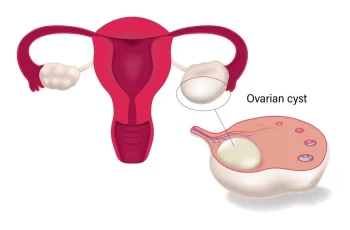Ad Blocker Detected
Our website is made possible by displaying online advertisements to our visitors. Please consider supporting us by disabling your ad blocker.
Attention-Deficit/Hyperactivity Disorder (ADHD) is often associated with the ability to juggle multiple tasks effectively, but research challenges this stereotype. A 2011 study comparing men with and without ADHD found no significant multitasking advantage in those with the condition. Instead, individuals with ADHD often face difficulties with task-switching, which can hinder effective multitasking. A 2012 study on children with ADHD further revealed a prolonged psychological refractory period (PRP), indicating a delay in processing when switching between tasks. This bottleneck suggests that multitasking can be less efficient for those with ADHD, particularly when tasks require sustained attention or cognitive effort.

The Role of Stimulation in ADHD Multitasking
Despite these challenges, some individuals with ADHD report that multitasking, such as listening to music while performing routine tasks like cleaning, can enhance focus by providing sensory stimulation. This aligns with the ADHD brain’s need for external stimuli to maintain engagement. For example, background music may help with low-demand tasks by creating a stimulating environment that reduces boredom. However, a 2015 study highlighted that ADHD symptoms are linked to “multi-communication” behaviors, such as texting while on a phone call, which can become problematic. These habits often lead to divided attention, reducing overall productivity and increasing errors, particularly in complex or critical tasks like studying or working on detailed projects.
When Multitasking Hinders Performance
The effectiveness of multitasking in ADHD depends heavily on context. While music or ambient noise might aid focus during simple, repetitive tasks, attempting to multitask during cognitively demanding activities—like completing homework or managing work deadlines—can lead to distractions and decreased performance. The ADHD brain struggles with prioritizing and filtering irrelevant stimuli, which can exacerbate inefficiencies when juggling multiple tasks. This can result in incomplete work, increased stress, and frustration, impacting both academic and professional outcomes.
Strategies for Managing Multitasking with ADHD
To address multitasking challenges, experts from CHADD (Children and Adults with Attention-Deficit/Hyperactivity Disorder) recommend tailored strategies to enhance focus and productivity. Prioritizing tasks using to-do lists or task management apps helps individuals focus on one task at a time. Setting timers, such as with the Pomodoro technique, can structure work periods and prevent overwhelm. Limiting digital distractions, like silencing notifications or using website blockers, reduces the temptation to engage in multi-communication. Additionally, extending time estimates for tasks and incorporating short breaks can accommodate the ADHD brain’s need for rest and prevent burnout. For tasks requiring minimal cognitive effort, background music or white noise can serve as a helpful tool, provided it does not interfere with focus.
Seeking Professional Support
When multitasking negatively impacts daily life, work, or relationships, consulting a healthcare provider or ADHD-specialized therapist is crucial. These professionals can offer personalized strategies, such as cognitive-behavioral therapy (CBT) or medication management, to improve attention and task management. They can also help individuals identify when multitasking is beneficial versus detrimental, tailoring solutions to their unique needs. By addressing multitasking challenges proactively, individuals with ADHD can enhance their focus, productivity, and overall well-being.

Ongoing Management and Self-Awareness
Living with ADHD requires ongoing self-awareness and adaptation. Regular check-ins with a therapist or coach can help refine strategies as life demands change. Joining support groups, either in-person or online, can also provide valuable insights from others with ADHD, fostering a sense of community and shared learning. By combining evidence-based strategies with professional guidance, individuals with ADHD can navigate multitasking challenges effectively, turning potential obstacles into opportunities for growth and success.



